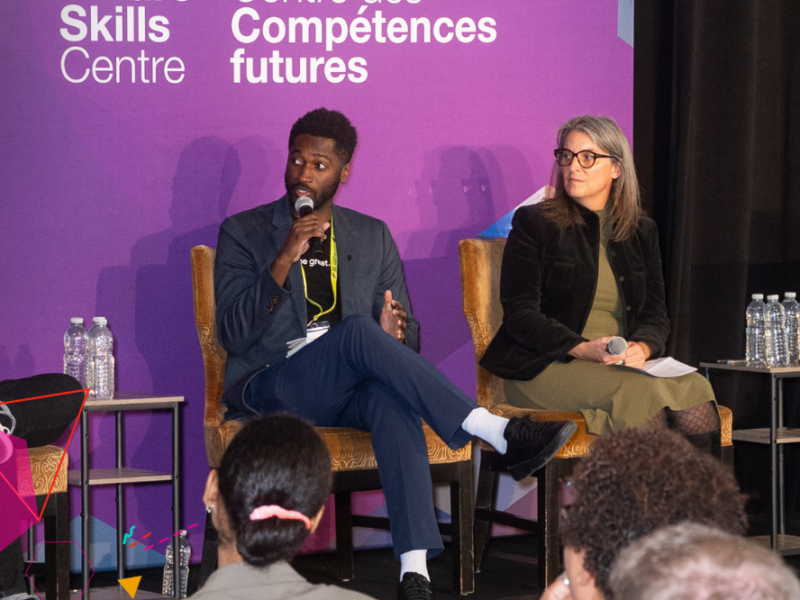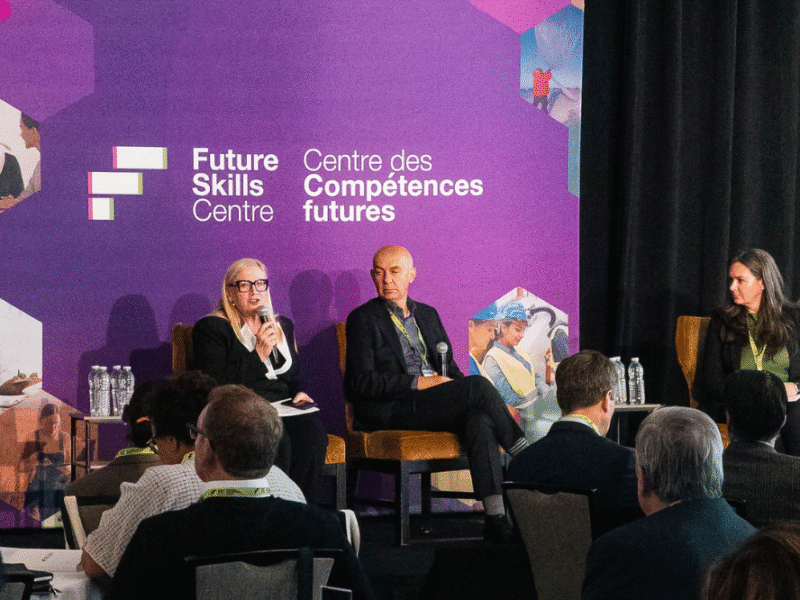Impact Story: A Systems Solution for Indigenous Employment in the North
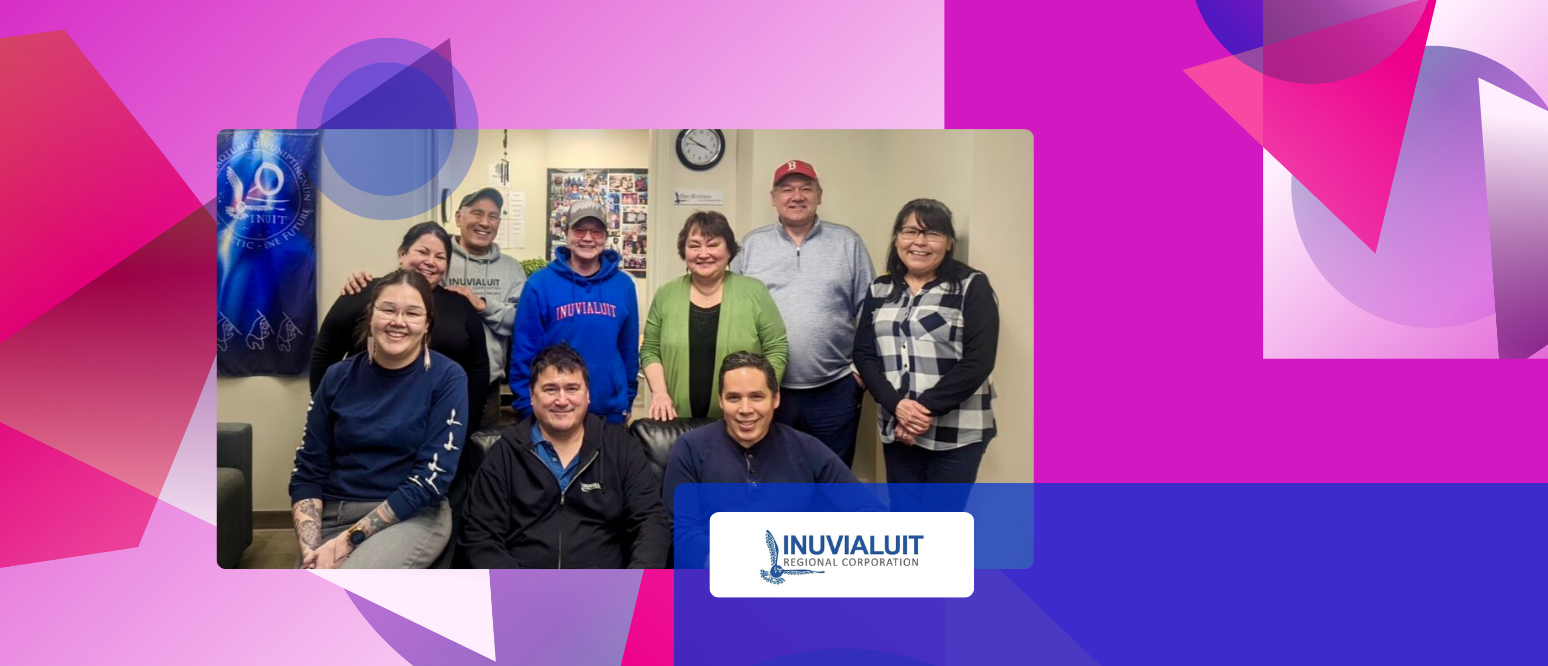
Indigenous communities, especially those in the Arctic, face significant barriers to education and the skills training that can lead to jobs. Addressing that starts with understanding the skills of the local community. Understanding the employment history, skills and education of Indigenous Peoples uncovers practical labour market information that can lead to training and career pathways. It can allow communities to respond to local labour market needs.
Future Skills Centre invested in an idea by the Inuvialuit Regional Corporation (IRC) to build a skills matrix for the people living in the six communities in the Inuvialuit Settlement Region of the western Arctic. They surveyed local people about their experience, including skills related to living on the land, that’s being added to a new database. If a community needs a plumber, they can reach out to people in the database who listed that experience, or someone who said they want to be trained. The matrix is providing essential information about skills and skills gaps at a time when the community is preparing for new jobs to emerge from the Inuvialuit Energy Security Project to produce natural gas and synthetic diesel fuel. It has potential to be adapted and scaled as a system solution for other Inuit, First Nation and Metis bodies across Canada.
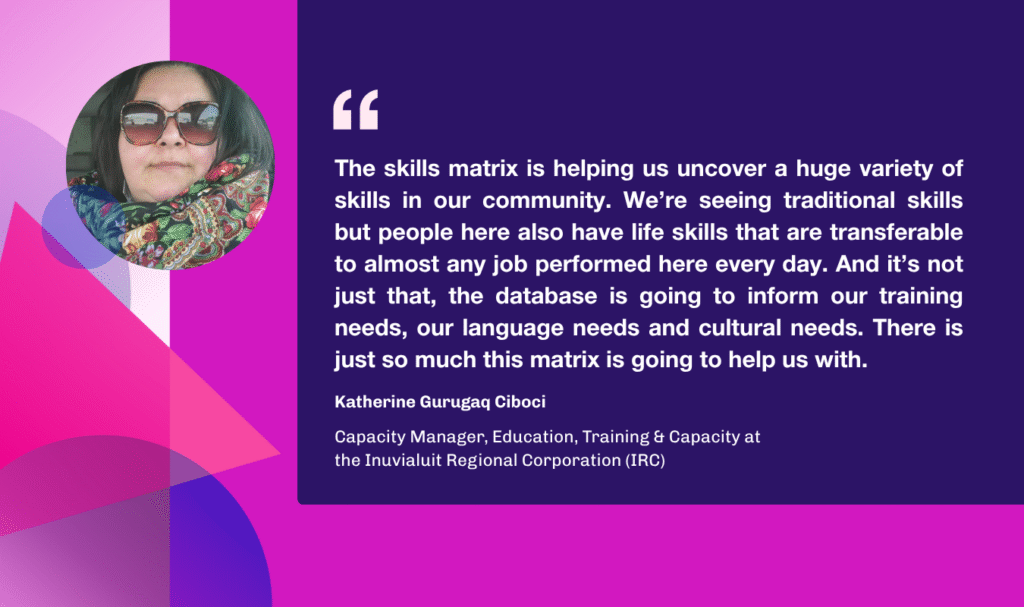
Katherine Gurugaq Ciboci, Capacity Manager, Education, Training & Capacity at the IRC, says her team is still uploading data from the 600 people who have participated in the survey so far, and they have many more people to contact. But, already, she sees the matrix paying off – the IRC’s finance team has found two people to fill accounting roles using the database.
“When it’s fully up and running, it’s going to be an amazing resource for our communities,” she says. “If Parks Canada, for example, is looking for a park ranger, then we can check the database. And it’s not just that, the database is going to inform our training needs, our language needs and cultural needs. There is just so much this matrix is going to help us with.”
Challenge: Uncovering the skills of a community
The IRC creates economic opportunities including local skills training to help 7,000 Inuvialuit participate in the Northern and national economy and society. To be more effective, the corporation needed to better understand its clients, who have a mix of post-secondary and trades certificates also non-traditional life skills that are valued in these communities.
“It’s not just the traditional skills or the Western skills of admin, accounting, things like that,” says Gurugaq Ciboci. “We’re also collecting information on language and culture, how fluent people are in speaking our language and who is living off the land, because we’re working hard to revitalize our language and strengthen our culture. Those life skills are invaluable, they’re transferrable to almost any job we do here.”
Solution: Creating a matrix of jobs and skills
To collect the information it needed, the IRC advertised for participants on local radio and bulletin boards. People were reluctant to fill out a survey, so the team pivoted to a series of face-to-face meetings and offered a gift card as an extra incentive. Success was helped along by the strong relationships the IRC has built with the communities. To date, four of the six communities have participated, and teams will be travelling by road and plane to the others. The IRC is also now tracking community members who received grants for post-secondary education but did not return home. They’ve learned that many would have returned if they had been aware of job opportunities and they will if one becomes available.
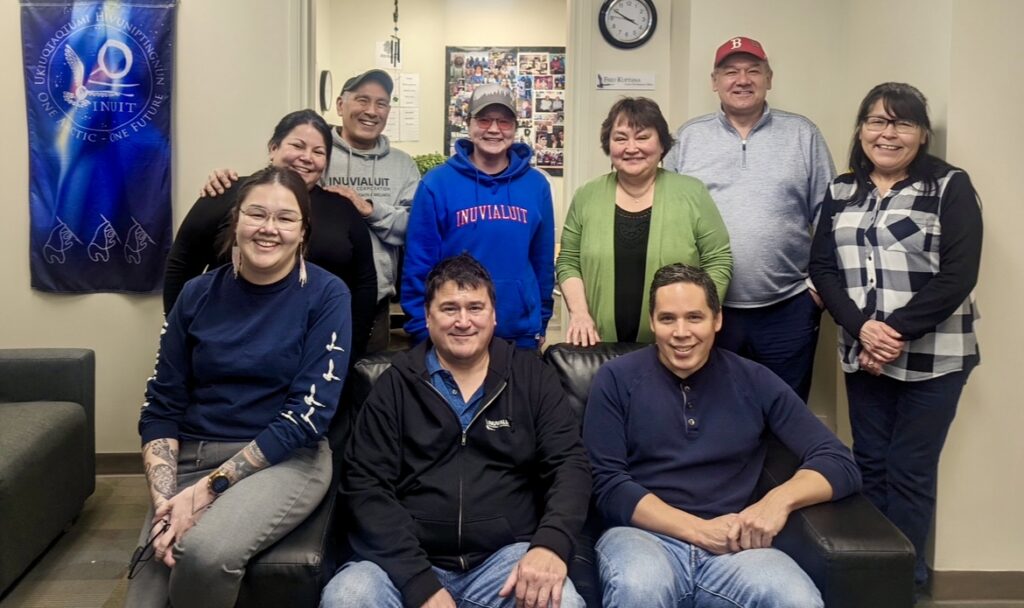
Lessons and future outlook: Flexibility for Northern communities
The project taught us that governments and employers who fund such initiatives need to build in more flexibility, longer timelines and bigger budgets. Life in Northern and remote communities has unique challenges, and collecting labour market information there requires flexibility to pivot when things do not go according to plan. Longer timelines help accommodate seasonal cycles, for example, and larger budgets help cover the expense of travelling for and conducting face-to-face meetings.
Gurugaq Ciboci says she believes other Indigenous communities could benefit from a skills matrix approach. “Maybe they will find a way to do it a little bit differently for their own people,” she says. “But we know that this works.”
The views, thoughts and opinions expressed here are the author’s own and do not necessarily reflect the viewpoint, official policy or position of the Future Skills Centre or any of its staff members or consortium partners.


